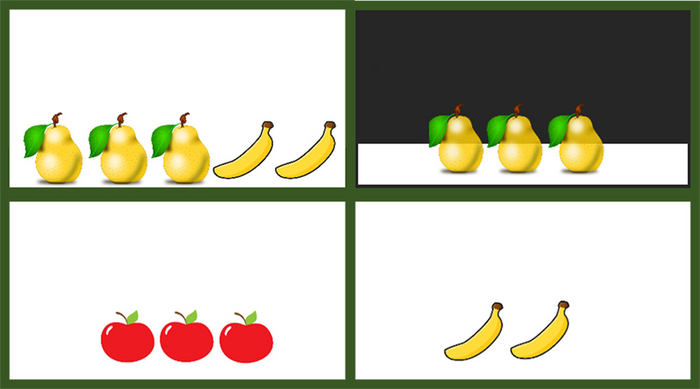Children who suddenly appear to lose the thread of an otherwise obvious conversation often do so because they cannot combine two key communicative skills until surprisingly late in their development, researchers have found.

Credit: Elspeth Wilson, Faculty of Education, University of Cambridge.
Children who suddenly appear to lose the thread of an otherwise obvious conversation often do so because they cannot combine two key communicative skills until surprisingly late in their development, researchers have found.
The study by academics at the University of Cambridge found that children as old as five or six have difficulty reconciling inference and perspective. It means that children may struggle to ‘read between the lines’ of a seemingly straightforward conversation with an adult if their frames of reference are different. Specifically, this happens if they know something the adult doesn’t, or vice versa – for example, if they are talking by video call or on the phone, or if they are in different rooms.
For instance, children may find it hard to process a simple request, such as: “pass me the blue hat”, in a situation in which the speaker knows which hat they mean, but the child can see another hat which better fits the description. Combining their understanding of what the speaker can see with the challenge of identifying the object most clearly implied by the request is a skill children seem not to acquire until surprisingly late in their development.
This finding changes our understanding of how children master ‘implicatures’: inferences that we make in conversation when people mean more than they say.
As adults, we do this constantly and without noticing, to understand and respond appropriately when talking with others. If, for example, a person is asked what they had for lunch and replies, “a sandwich”, the listener might reasonably assume that was all they had for lunch, even though technically they might have had more. Similarly, after hearing the statement, “your cat and dog went to the vet, but the cat is fine,” a grasp of implicature may mean we justifiably fear for the fate of the dog.
Children begin to understand implicatures at around three years of age. The new study, however, shows that this only applies if they share the speaker’s visual perspective. If what they can see is at odds with the speaker, then even a child twice that age may struggle to formulate an appropriate response.
Dr Elspeth Wilson, from the Faculty of Education, University of Cambridge, said: “In general, we are discovering that children can understand more at a younger age than we used to think, but certain conversational situations are an exception. A five-year-old can handle making an inference and taking another’s perspective separately, but combine both and it becomes too challenging. Most of the children in our study had real trouble with it.”
“As parents or teachers, we need to remember that when children fail to get what adults mean, it may not just be because they don’t understand the words. Sometimes, the context of a conversation is too complex and children struggle to make the inferences they need.”
The study focused on a particular group of implicatures, known as ‘quantity implicatures’, which arise when a speaker gives limited information on the assumption the listener will understand the rest.
To test how children handle these inferences, and whether they take into account the speaker’s visual perspective, the researchers created an experiment in which 33 five and six-year-olds held a conversation with a puppet manipulated by an adult. The child and adult sat on opposite sides of a display case containing double-sided picture cards. The puppet ‘asked’ the child to select cards depicting certain objects, for example, by saying: “Give me the card with apples on it”.
There was, however, a catch. While both the child and puppet could always see a card which featured the requested image along with something else, in some cases the child could also see a better match which the puppet could not. In the example above, this might mean the child could also see a card which only featured apples, while both the child and puppet could see one with apples and bananas. From the speaker’s limited perspective, “the card with apples” was a good description for one card they could see. The child also had to take account of what the puppet could not see, and avoid choosing the card with only apples on it.
Of the 33 children, 29 failed this test, even though they managed capably in other scenarios which tested implicature and perspective-taking separately. When adults completed the same test, just nine out of 36 failed. A second, similar, follow-up experiment with 25 more children produced similar results.
“It’s possible that children are actually trying their best to integrate implicature and perspective-taking but struggle to reconcile them,” Wilson said. “In our experiment, they may have realised the implicature of the request clashed with the reality of what the speaker could see, but then responded with the wrong strategy – for example, they might have been trying to correct the situation on the speaker’s behalf.”
These kinds of findings about children’s development could eventually be important for clinical professionals when assessing their pragmatic skills. The fact that combining implicatures and perspective-taking is still a challenge for children at age five or six also means that primary school teachers could play a role in helping younger pupils to develop these important skills, through classroom dialogue.
“The more we understand about children’s linguistic and communicative development, the better we can support that development at school and in the home,” Wilson added.
The research is published in Language Learning and Development.
Journal
Language Learning and Development
DOI
10.1080/15475441.2022.2050236
Article Title
The Role of Perspective-Taking in Children’s Quantity Implicatures
Article Publication Date
30-Jun-2022




